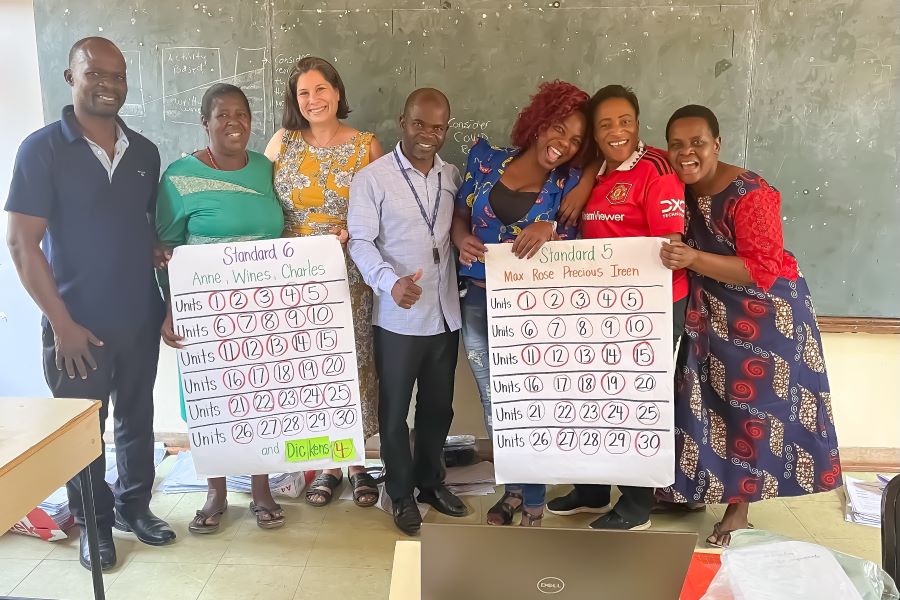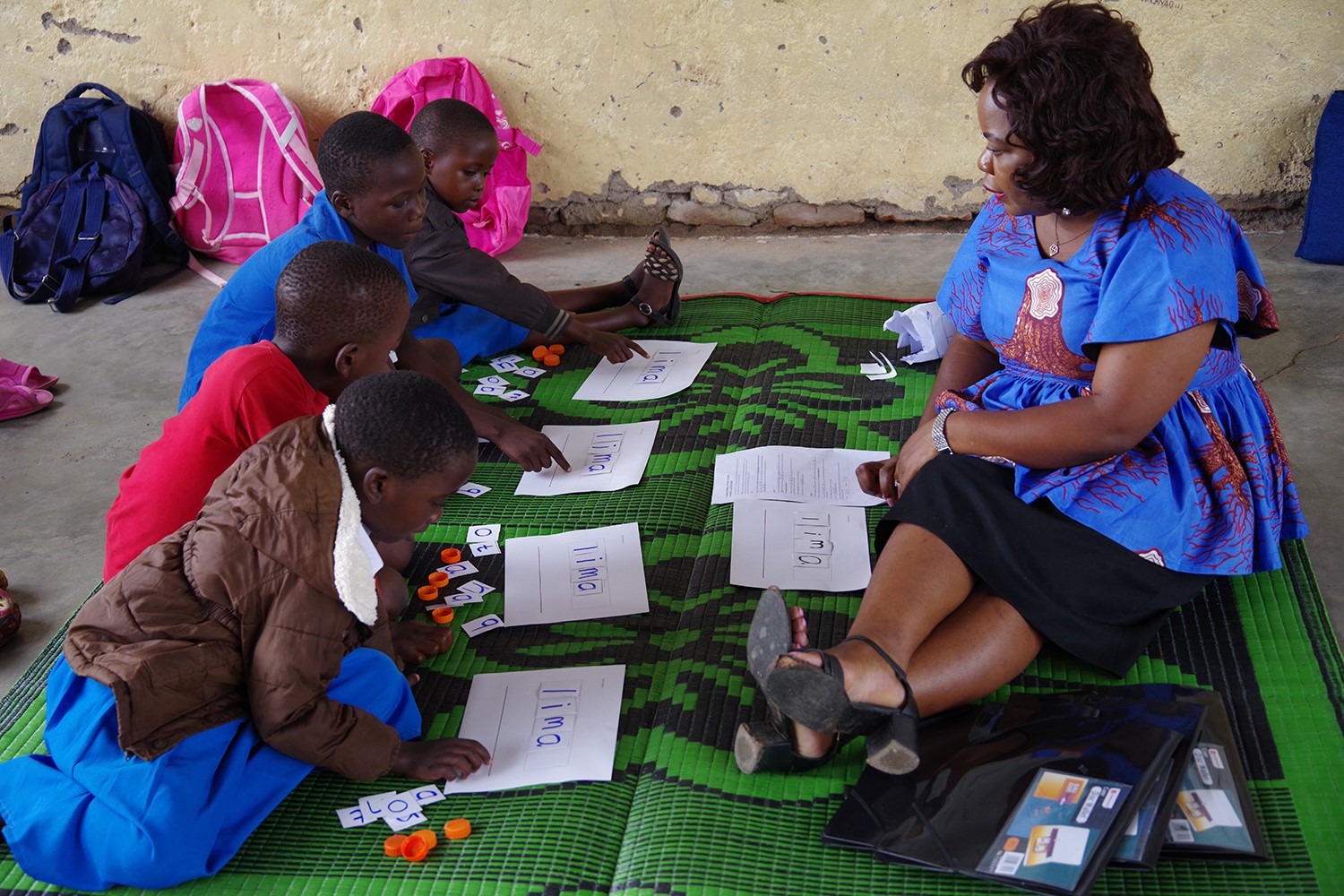FSU News: Learning Systems Institute at FSU enhances learning around the world
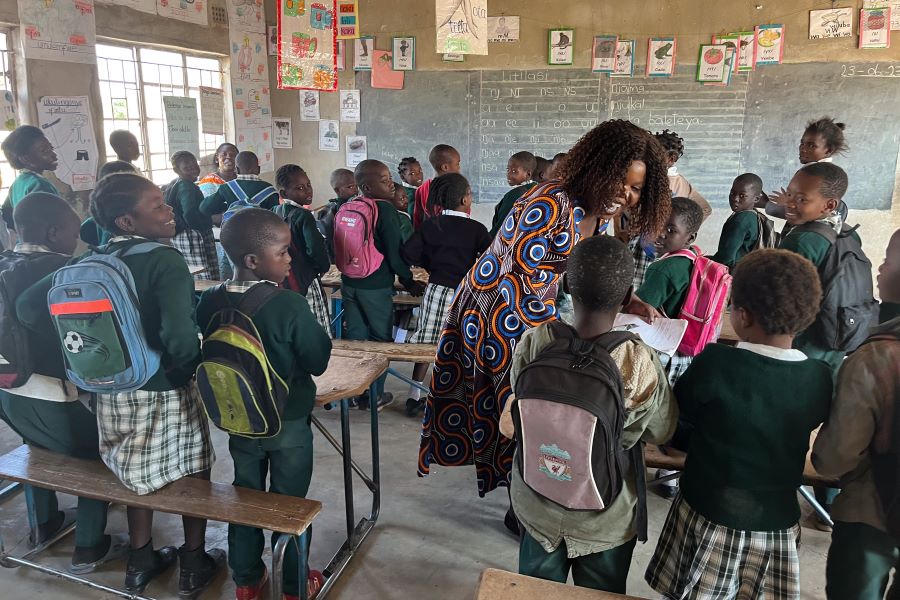
In 1969, the Learning Systems Institute (LSI) at Florida State University was founded to improve learning and human performance globally. More than 50 years later, LSI at FSU remains at the forefront of developing innovative solutions that bridge theory and practice in education.
LSI at FSU focuses its efforts on how individuals and organizations perform complex tasks and how to help them achieve their performance goals. Since its inception, faculty and staff at LSI have touched the lives of millions across the globe, transforming the way people learn.
“By helping to develop and improve learning systems, LSI’s work is improving the lives of millions of people,” said LSI Director Rabieh Razzouk. “Teaching is crucial for the development of countries and of people, and our faculty and staff are experts at working to help innovate learning systems wherever they are.”
A successful multiyear, multimillion-dollar effort to transform Korean education in the 1970s laid the foundation for LSI’s international work over the past five decades. Since that project, LSI has worked with 47 countries and surpassed $750 million in contract and grant funding.
In 2023, the institute continued to lead the way in learning and human performance, specifically in Malawi, Egypt, the Philippines, Uzbekistan, Rwanda and Zambia.
Malawi – Strengthening Teacher Education and Practice, National Reading Program Implementation and Expansion
To increase access to and strengthen the education system in Malawi, LSI is leading a five-year, $15.6 million project sponsored by the United States Agency for International Development (USAID).
The Strengthening Teacher Education and Practice (STEP) Activity aims to improve teacher training and professional development resources for teachers. LSI faculty is working with 16 Teacher Training Colleges (TTCs) across the country to improve teacher education programs and develop new training materials related to literacy and numeracy education.
Malawi is a country in southeastern Africa with a population of almost 20 million people. Since introducing free primary education in 1994, Malawi has made significant progress toward education reform. High enrollment rates and increasing demands on the system, however, have led to an inadequate supply of infrastructure, teachers, and teaching materials—resulting in poor student performance, particularly in literacy, according to USAID.
The STEP project team has delivered intensive professional development training to 130 teacher educators from all public and private TTCs in Malawi. These same participants are engaged in 21 different Participatory Action Research projects at TTCs across Malawi.
LSI also just completed work on the National Reading Program Implementation and Expansion Activity in Malawi, which provided technical support to federal stakeholders to increase English and Chichewa literacy. Chichewa is the most widely spoken language in Malawi. The project team improved the capacity of about 100 teachers, teacher educators and curriculum writers in literacy education, curriculum development, and monitoring and evaluation.
Egypt – Teacher Excellence Initiative
USAID identifies Egypt as the Middle East’s largest school system, with more than 25 million students. Although it has impressive enrollment rates and gender parity at all levels, the quality, efficiency and market relevance of education in Egypt are low.
To tackle these challenges, the Ministry of Education and Technical Education in Egypt launched its groundbreaking Education 2.0 program to transform the country’s education system with an emphasis on skills-based learning and an expansion of digital learning.
To support this program, LSI is collaborating with the FSU College of Education, Health, and Human Sciences on the Teacher Excellence Initiative. This unique international collaboration focuses on improving the quality and relevance of teacher preparation in Egyptian public universities, ensuring that teachers possess the necessary skills to support student learning in K-12 schools across the country.
“The FSU team’s dedication to enhancing teacher education in Egypt through research and collaboration demonstrates a pioneering spirit that sets an inspiring example for others in the field,” said Flavia Ramos-Mattouss, an LSI research faculty member who’s serving as the principal investigator on the project. “This effort exemplifies the power of partnership and knowledge-sharing on an international scale.”
LSI at FSU will review, revise and enhance the capacity of faculty at 15 Egyptian public universities. Researchers will also focus on updating undergraduate and graduate degree programs for elementary school teachers and establishing partnerships between the U.S. and five Egyptian universities.
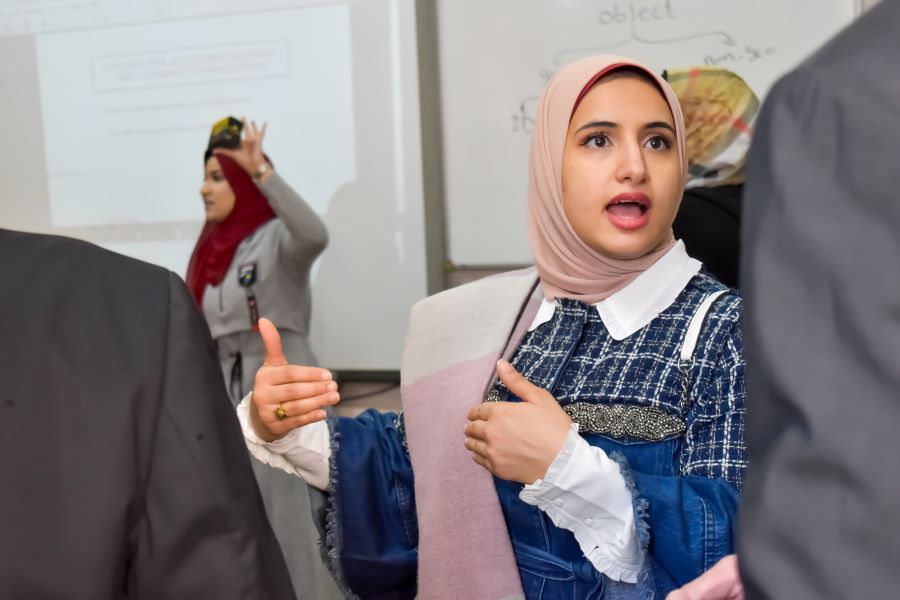
Philippines – ABC+: Advancing Basic Education
Improving education outcomes for all children and youth remains a core challenge for the basic education system in the Philippines, an archipelago country in Asia consisting of more than 7,000 islands. At the root of the problem are the poor reading and math skills of many Filipino students, particularly in the early grades, according to USAID.
LSI worked with the Department of Education in the Philippines on the ABC+: Advancing Basic Education project to address factors contributing to low learning outcomes in the Bicol and Western Visayas regions. Funded by USAID, LSI developed and strengthened the capacity of Bicol University and West Visayas State University to implement the Bachelor of Early Childhood Education and the Bachelor of Elementary Education curricula.
After receiving a contract extension earlier this year, LSI will continue to develop and strengthen the capacity of Bicol University, West Visayas State University and the Department of Education (DepED) of the Philippine government, with a focus on early literacy.
“We are excited about this contract extension because it allows us to work with the faculty and the DepEd officials to strengthen their research skills while generating evidence that responds to the unique needs of the Philippines education system,” said Ana Marty, LSI research faculty member and principal investigator on the project.
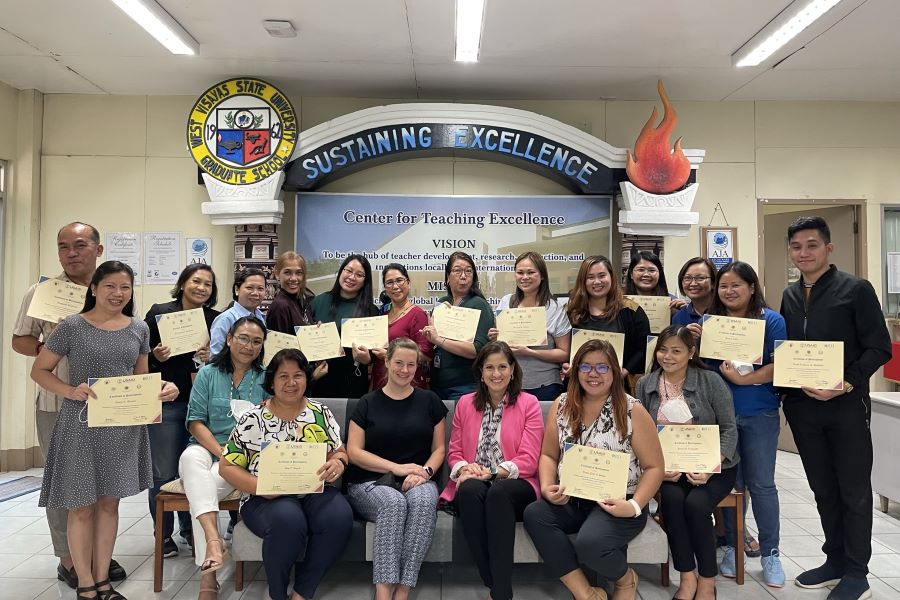
Uzbekistan – Education for Excellence Program
The educational system in Uzbekistan, Central Asia’s most populous country, is entrenched in antiquated academic models, according to USAID. Nationwide, instruction focuses on memorization rather than enabling students to apply what they learn. The school day is short, and the allocated time for academic subjects is very low and compounded by a curriculum not based on national standards.
LSI recently completed the Uzbekistan Education for Excellence Program, which benefitted 40,000 teachers and 6 million students by distributing English textbooks for all grade levels nationwide. Funded by USAID and implemented by the Research Triangle Institute International, LSI at FSU developed an educational digital platform to house all curriculum standards and materials, making them accessible to all 300,000 teachers in Uzbekistan.
Researchers also provided training, facilitation and guidance on developing the new curriculum standards for math, Uzbek Language Arts, information and communication technology and English as a foreign language.
“The work LSI contributed to the Uzbekistan Education for Excellence Program was a perfect illustration of how our staff develops innovative solutions for learning and then successfully implements those in a real-world setting,” said Razzouk, who served as the principal investigator on the project.
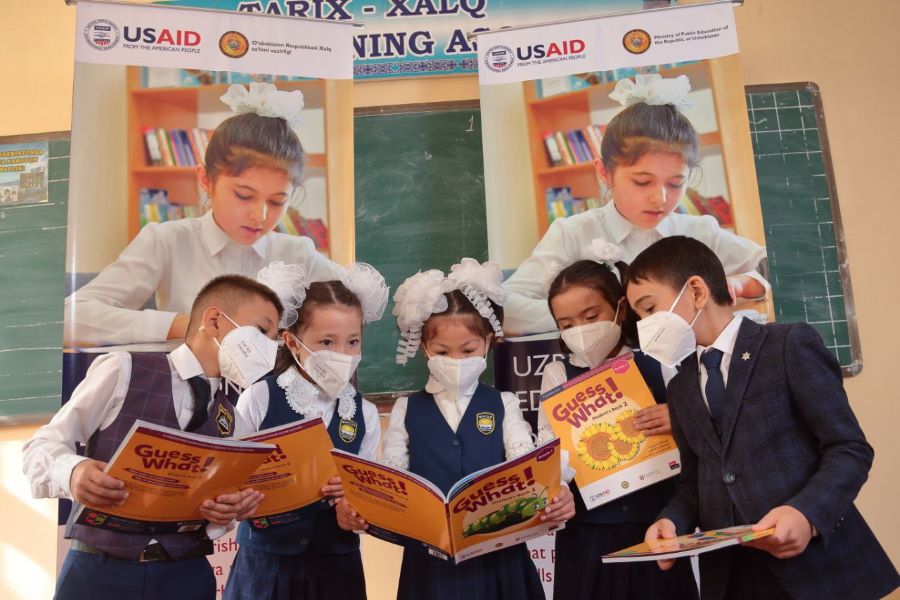
Rwanda – Tunoze Gusoma Schools and Systems
A small country with the highest population density in Africa, Rwanda has achieved notable success in the education sector. It boasts the highest net enrollment rate in Sub-Saharan Africa, with 98.8 percent of children enrolled in primary school. The remaining challenges identified by USAID include increasing literacy and numeracy levels, reducing the school drop-out rate and increasing the overall quality of basic education delivery.
In conjunction with several partners, LSI is working to ensure that the literacy instruction of Kinyarwanda, an official language in Rwanda, in pre-primary and lower primary schools is high quality, accessible and effective.
In Kigali, Rwanda, members of the LSI international team supported the Tunoze Gusoma – Schools and Systems project. The project implemented training for a previously developed module on teaching literacy skills in the Kinyarwanda language and delivered it to instructors across Rwanda.
This project has provided intensive professional development on literacy education to 46 teacher educators from TTCs across Rwanda. Nearly 2,300 curricular books and materials were delivered to 16 TTCs for use in literacy-related activities.
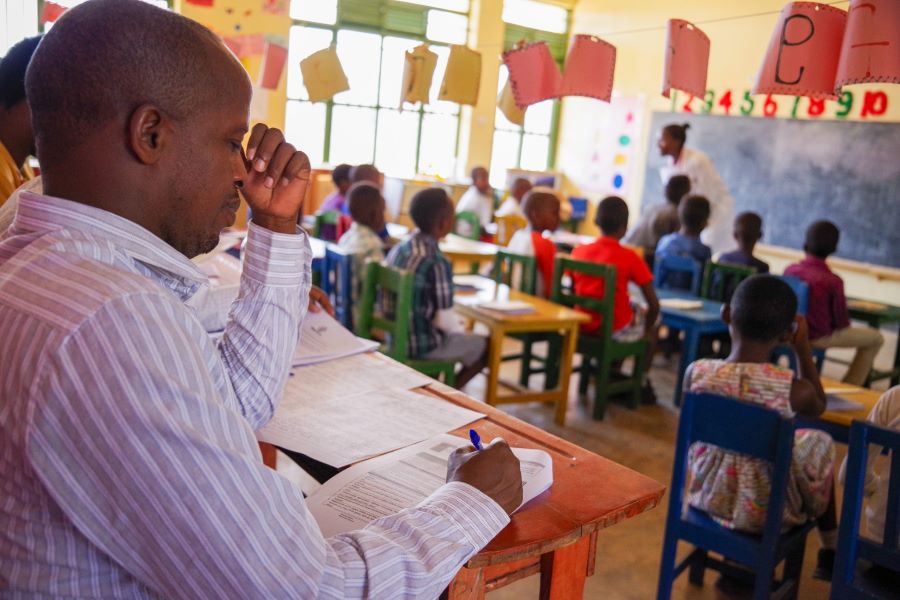
Zambia – Transforming Teacher Education Activity
Funded by USAID, LSI’s Transforming Teacher Education Program (TTE) recently entered its fourth year of working to improve the training of primary grade teachers in Zambia, a country in Africa adjacent to Malawi.
According to USAID, the education system in Zambia is challenged by inadequate resources, poor quality of education delivery, and low secondary progression rates.
Throughout the TTE program, LSI has provided educators in Zambia with the skills to deliver effective instruction to 9,000 students studying to become primary-grade teachers. In 2023, new instructional modules for language and literacy for use in pre-service teacher training programs in colleges of education were finalized, and lecturers from 12 colleges and universities were trained on the new materials. An enhanced approach to the student teaching practicum was rolled out in all government colleges of education.
“This project is exciting as FSU has a lead role in improving primary teacher education at a national level,” said Stephanie Simmons Zuilkowski, an LSI associate professor and the project’s principal investigator.
This work will ensure that teachers enter the classroom prepared to teach children how to read and to provide safe learning environments.
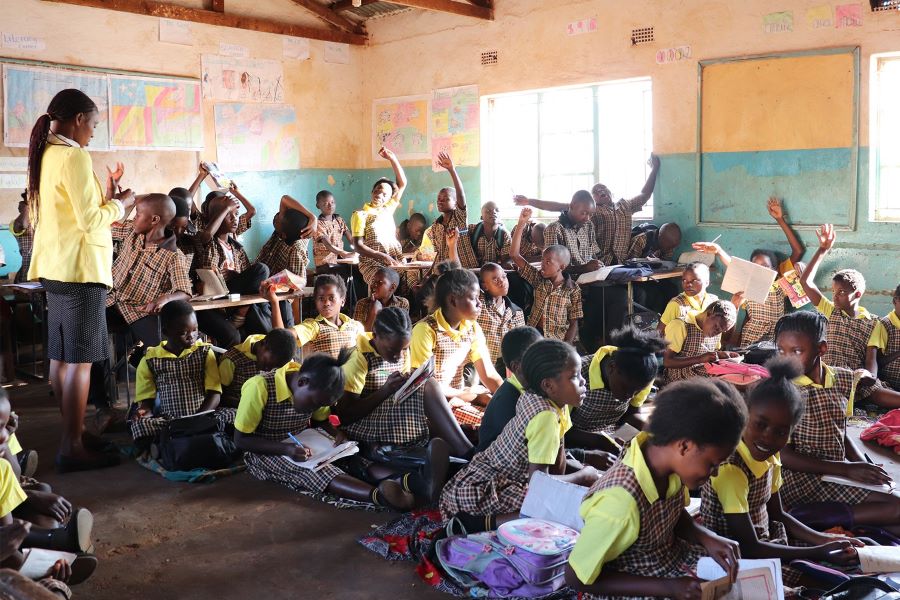
LSI also oversees the Community College Administrator Program (CCAP), a U.S. State Department initiative intended to enhance international understanding of U.S. community colleges and U.S. community college systems. About 250 individuals from more than 200 institutions in 15 countries have participated in the CCAP. This spring a group from South Africa will visit Tallahassee.
In Florida, LSI developed CPALMS, a unique platform designed to support K-12 education that serves as Florida’s official source for standards information and course descriptions. During the last year, CPALMS had more than 70 million resources delivered to Florida’s educators and students.
For more information about LSI at FSU, visit lsi.fsu.edu.

